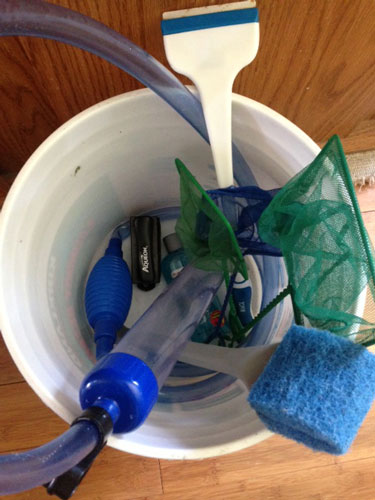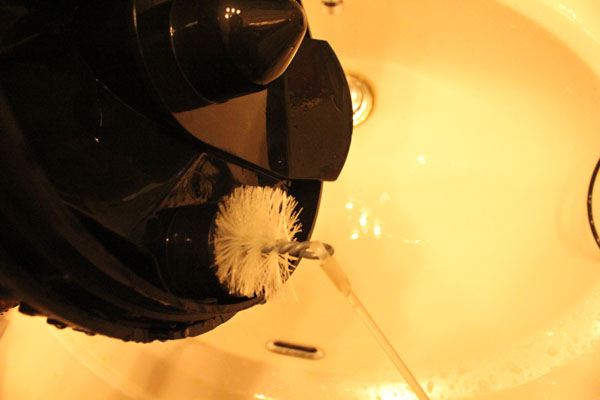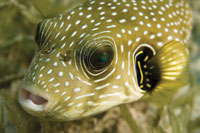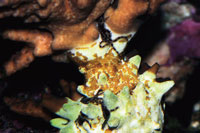Ever wondered why you have sensitive skin and what you can do to gain some control over your skin condition? Read on as we reveal the 10 most common questions about sensitive skin.
1. What is sensitive skin?
Many people say they have sensitive skin because certain skin care products, or household products that contact their skin, cause stinging, burning, redness, and/or tightness. Although they have no visible effects after contact with a product, it always makes their skin feel uncomfortable.
Dermatologists, doctors who specialise in skin, consider the diagnosis of Sensitive skin when they:
* See skin reactions such as pustules, skin bumps, and/or skin erosion.
* Observe excessively dry skin, which doesn’t adequately protect nerve endings on the skin and may lead to skin reactions from cosmetics or skin care products.
*Notice a tendency to blushing and skin flushing, which may also be signs of sensitive skin.
2. How do I know if I have sensitive skin?
If you experience reactions to your skin such as pustules, skin bumps, and/or skin erosion or have excessively dry skin, then have your skin examined by a dermatologist. That’s the most certain way to find out if you have sensitive skin, or if there is another cause for your skin condition.
3. What causes sensitive skin reactions?
Causes of sensitive skin reactions include:
* Underlying skin disorders or allergic skin reactions related to immune system dysfunction such as atopic dermatitis (eczema), urticaria (hives), rosacea, or allergic contact dermatitis.
* Overly dry
* Excessive exposure to skin-damaging environmental factors such as sun and wind, or excessive heat or cold.
4. Are there medical tests for sensitive skin?
Patch testing may identify hives, general itchiness, or eczema as signs of allergies that are causing or contributing to sensitive skin. Otherwise it is difficult for doctors to test for sensitive skin because of the many and varied factors that can cause it.
5. What are some tips for caring for my sensitive skin, especially for my face?
Cleansing - Dermatologists say that people’s sensitive skin responds differently to different cleansing methods. But most agree that �deodorant� soap or highly fragranced soap contains strong detergents and should not be used on the face. Soap-free cleansers such as mild cleansing bars and sensitive-skin bars, along with most cream facial cleansers-like the natural, vegan friendly Larissa Bright Cleansing Emulsion, have a lower pH than soaps. They have less potential for facial skin irritation.
The Larissa Bright vegan friendly, Australian made Sea and Cinnamon Body bars, from their natural bodycare range, have been specially created to have the same pH level as the skin, they are also creating without artificial fragrances, drawing on natural essential oils which, not only scent the bar but provide powerful healing properties.
The Larissa Bright Vegan Skincare collection contains a pure and natural list of ingredients including fruit extracts and plant botanicals- soothing and soft on the skin. Natural ingredients like soothing Chamomile, Aloe Vera and Avocado are natural and gentle on the skin.
Moisturising - You should keep sensitive skin well moisturised to resists drying and abrasion.
The Larissa Bright Australia Vegan Skincare Collection is cream based, so that it wont dry out your skin. The body and spa collection contains several choices of moisturiser to suit your skins needs, such as:
Rich and luxurious - the baby care Mango & Papaya Moisturiser. a velvety body butter style moisturiser that is intensely moisturising but super gentle on skin. Not just for children!
Lavender Body care Moisturiser - a light creamy moisturising that is quickly absorbed into the skin but highly moisturising. It is non greasy and fast absorbing.
Coconut Body care Milk- a thicker, heavenly scented body moisturiser. this is perfect for very dry skins and sun damaged skin. suitable for pregnant and breast feeding women.
Cosmetics - Cosmetics are mostly made using synthetic ingredients; mineral make up has become hugely popular of recent years, but you may be surprised as to what some companies include in the 'pure' mineral makeup. When selecting makeup for sensitive skin you should be aware of the following tips to select a gentle makeup.
6. What should I look for in skin care products that are less irritating to sensitive skin?
Specific guidelines are lacking, but more �skin-friendly� products contain only a few ingredients and little or no fragrance
If you have sensitive skin, avoid products containing:
* Alcohol
* Retinoids
* Artificial Fragrances
* A lot of chemicals
7. What types of cosmetics are less irritating to sensitive skin?
* Do not use waterproof cosmetics, because you need a solvent to remove them.
* Use products with fewer than 10 ingredients.
* Use black eyeliner and mascara, which appear to be least allergenic.
* Use earth-toned eye shadows, which are generally less irritating to upper-eyelid skin than darker colors.
* Throw out old cosmetics, which can spoil or become contaminated.
8. What are tips for protecting my sensitive skin in winter and summer?
In winter to help prevent skin dryness, flaking, itching, and cracking:
* Don’t overheat your home.
* Take warm, not hot, baths and showers -- and fewer of them -- and use a soap-free cleanser.
* Minimise skin dryness after bathing: Pat your skin dry and apply moisturiser while your skin is still moist.
* Use a moisturiser containing natural ingredients and that contains no artificial fragrances; like the Larissa Bright Australia Mango & Papaya Moisturiser, Lavender Body care Moisturiser or the Coconut Body care Milk.
In summer, keep in mind that tanning actually damages your skin -- don’t lie out in the sun, even if you’ve applied sunscreen. If you do go out, wear a wide-brimmed hat and sunglasses and tight-woven clothing that covers your arms and legs, apply your sunscreen 15 minutes to 30 minutes before going out, and reapply your sunscreen every two hours or after swimming or if you’ve been perspiring heavily.
9. Can healthful eating help sensitive skin?
Eating healthfully, of course, is good for your whole body, including your skin. But there is one nutritional group that, when lacking, can cause dry, flaky, sensitive skin: the B complex vitamins riboflavin, niacin, B-6, B-12, and biotin.
Taken in adequate amounts, B complex vitamins can actually help relieve skin dryness and itch as well as stress. Ask your dermatologist or nutritionist if you could benefit from including more whole grains, rice, wheat germ, oatmeal, sunflower seeds, fish, eggs, almonds, liver, yeast, and low-fat dairy products in your diet.
10. Can sensitive skin be inherited?
A number of the skin diseases and conditions associated with sensitive skin are known or believed to run in families. They include acne, eczema, psoriasis, and rosacea. Skin irritation from a reaction to a skin care, cosmetic, or household product is not inherited.

 What to Keep in Your Aquarium Maintenance Bucket
It is too easy for hobbyists, especially new ones, to become
What to Keep in Your Aquarium Maintenance Bucket
It is too easy for hobbyists, especially new ones, to become
 How to Maintain Your Aquarium Filter
Aquarium filtration saw monumental advances in technology du
How to Maintain Your Aquarium Filter
Aquarium filtration saw monumental advances in technology du
 Pufferfish Teeth Care
Because their teeth are constantly growing, pufferfish
Pufferfish Teeth Care
Because their teeth are constantly growing, pufferfish
 Coral and Invertebrate Quarantine Procedures
Coral and Invertebrate Quarantine Procedures
 Red Algae in Marine Aquarium
Q. Ive been keeping saltwater fish for about five years, and
Red Algae in Marine Aquarium
Q. Ive been keeping saltwater fish for about five years, and